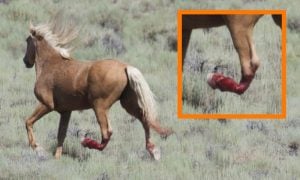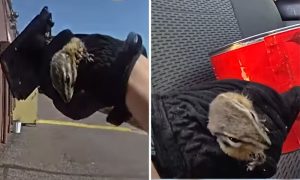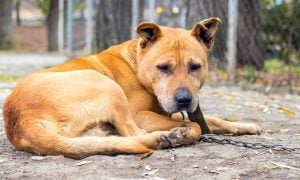In excellent news for cows and the environment, global tech giant Apple is replacing leather in its products with a more compassionate and environmentally-friendly fiber alternative.
Apple announced it will no longer be using leather in its products — including watch straps and phone cases — to help reduce its carbon emissions as part of its Apple 2030 goals.
Instead, customers can expect to see a new material called Fine Woven, which the company described as “an elegant and durable new textile made from 68 percent post-consumer recycled content.”
The move will help Apple keep customers satisfied while also helping the planet, said Apple’s VP for Environment Lisa Jackson.
“It [Leather] has a significant carbon footprint, especially at Apple’s scale,” Jackson said. “To reduce our impact, we will no longer use leather in any new Apple product, including watch bands.”

FineWoven (Photo Credit: Apple)
What’s so cruel about leather?
Contrary to popular belief, leather is not just a by-product from the meat and dairy industries but a $630 billion market of its own and growing. The number of cows killed annually to meet the demand for leather is expected to increase from 290 million animals in 2020 to 430 million animals by 2025, according to some studies.
Animals whose skins become leather suffer horrifically in both the United States and abroad. Cows killed for their skins in some overseas countries often are forced to endure painful branding and marching for miles on end without food or water, while in U.S. slaughterhouses they can face being skinned alive after being only partially stunned — in violation of federal law — due to tremendously fast, permitted line speeds.
But the massive number of cows being raised for dairy, meat, and their skins also has horrific environmental costs, including being a leading contributor to greenhouse gas emissions that are fueling climate change and also toxic runoff from tanneries that are creating “dead zones” in nearby water systems. Producing leather also has high energy costs at all stages, from transporting hides for processing to treating wastewater and disposing of solid wastes like hair and flesh, according to research from Faunalytics.
Those impacts are drastically reduced in the production of many synthetic alternatives.
For example: creating a tote bag made of cow skin leather typically would involve about 100.5 kg of CO2 e (carbon dioxide equivalent), compared to only 14.4 kg involved to create a PU synthetic tote bag of the same size, according to Collective Fashion Justice, an organization whose mission is to illuminate the interlinked injustices in fashion supply chains that harm the planet, people, and animals.
Lady Freethinker applauds Apple for this compassionate change and for signaling to the world that cows and other animals should not be cruelly skinned for people’s products when so many more environmentally-friendly, comfortable alternatives already are available!
It’s also not just gentle cows and their babies who suffer for leather. If you haven’t already, please sign our petition urging companies to stop using kangaroo skins in U.S. products!







